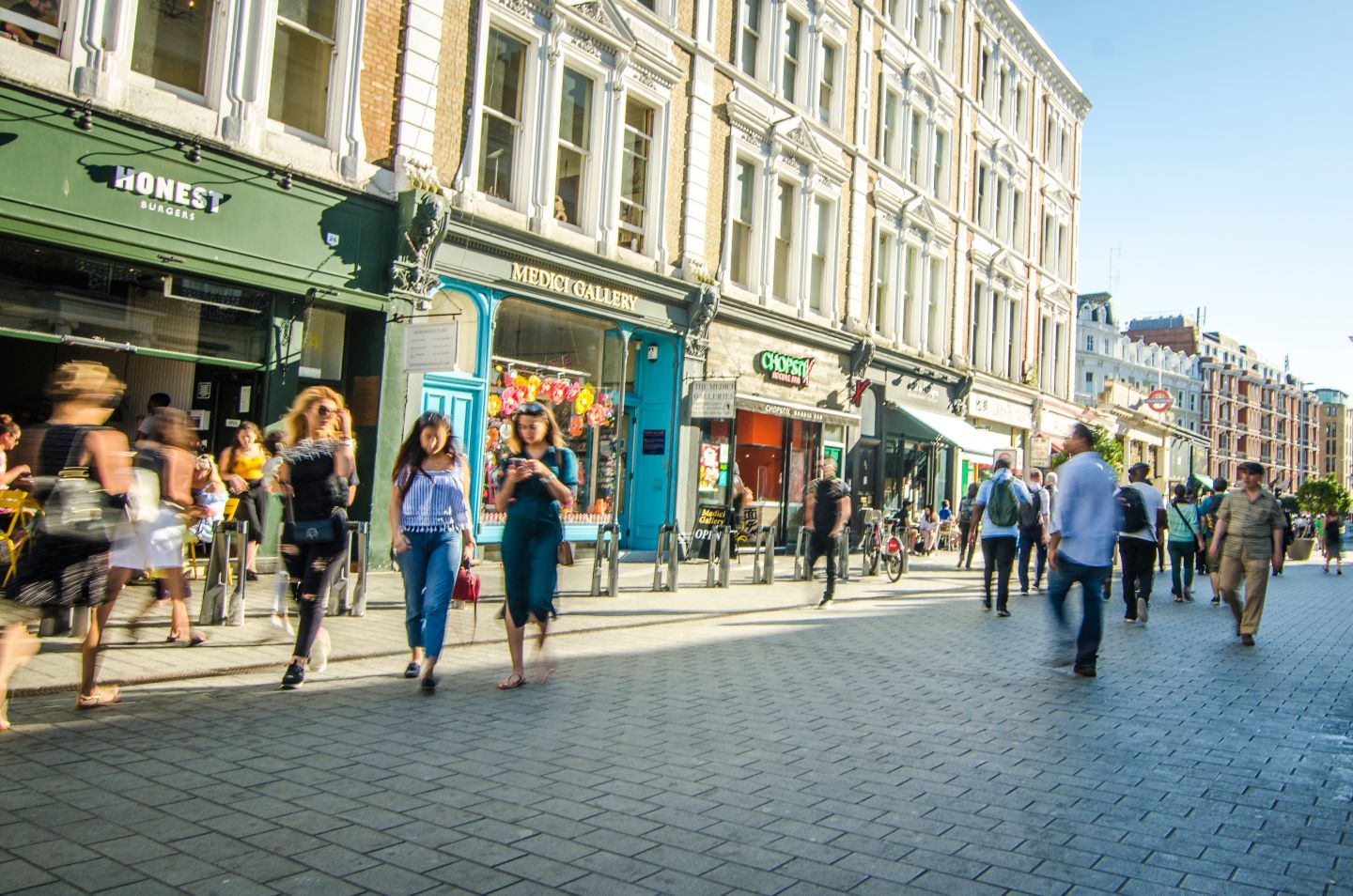UK retailers hope for weather boost for clothing

Though total UK retail sales grew 3.5% year-on-year in March 2024, against a growth of 5.1% in March 2023, the increase had little to do with clothing performance.
In fact, non-food sales fell 1.9% year on year over the three months to March, against a growth of 1.8% in March 2023. This is steeper than the 12-month average decline of 1.1%.
For the month of March 2024, non-food sales were in decline year-on-year.
In-store non-food sales over the three months to March 2024 decreased 1.1% year on year, against a growth of 5.2% in March 2023. This is below the 12-month average of 0.0%.
Online non-food sales decreased by 1.4% year on year in March 2024, against a decline of 2.1% in March 2023. This was shallower than the 3-month and 12-month declines of 3.1% and 2.8% respectively.
Clothing and footwear sales were dampened by wet weather, said Helen Dickinson OBE, chief executive of the British Retail Consortium.
Access the most comprehensive Company Profiles
on the market, powered by GlobalData. Save hours of research. Gain competitive edge.

Company Profile – free
sample
Your download email will arrive shortly
We are confident about the
unique
quality of our Company Profiles. However, we want you to make the most
beneficial
decision for your business, so we offer a free sample that you can download by
submitting the below form
By GlobalData
The improvement in overall retail sales is thought to be down to Easter falling unusually early and the subsequent uplift to food sales in the week preceding the long weekend.
Dickinson added: “After a difficult start to the year, retailers are hopeful that with warmer weather around the corner, consumer confidence will spring back up. A strong retail industry can boost investment across our towns and cities, and as we gear up for a general election, it is essential the next government recognises this and rethinks the burdensome costs imposed on retailers.”
Linda Ellett, UK head of consumer markets, leisure & retail at KPMG, added: “As April signals big increases in the sector’s cost base – through the rise in minimum wage rates and business rate hikes for the larger high street brands – retailers will be hoping that the bounce back of March sales is more than just an Easter blip.
“Economic indicators are heading in the right direction with inflationary pressures easing and interest rates having potentially peaked, however, consumer confidence remains fragile, and households continue to keep a close eye on where their tight budgets are being spent. It remains a challenging environment, but as we head into the warmer months, retailers will be hoping that stronger consumer confidence will turn into stronger retail sales, especially in more discretionary categories such as clothing, following an incredibly difficult few years.”
Commenting on the numbers, Clive Black, analyst at Shore Capital, noted the impact of a 10% increase to the minimum wage in the UK, which kicked in at the start of April.
Black said: “The non-food component of the UK retail system could do with a weather boost, even the likes of retail royalty like Next, especially in the face of rising UK state infused costs.”
Black also said that improved spring weather could ease “some of the heat on the current budgets of discretionary non-food retailers”. He added: “So, if the sun comes out for a while, the capability of the British household to spend feels better. Let’s hope, let’s see.”
In March, the BRC joined UK fashion retailer New Look, UK luxury sector body Walpole and shopping centre Westfield to express “utter disappointment” after the UK government failed to address apparel retailer concerns on business rates, VAT and investment in its Spring Budget.
Related
High street fashion giant to close 35 stores in just…
SelectFashion, the popular women's fashion retailer known for its affordable, trendy clothing, is set to close 35 stores within days, following a series of clo
Paris Friday: Victoria Beckham, Issey Miyake, Kenzo, and Róisín Pierce
One ranged from a gilded embassy or under the Louvre to an elegant br
Hillingdon woman adapts clothes to help neurodivergent shoppers
Ms Rule is a special educational needs coordinator at Douay Martyrs Catholic Secondary School in Hillingdon but works on her business in the evenings and at wee
British fashion creators accuse Chinese retail giant Shein of using…
British fashion is under threat from artificial intelligence that can identify popular products and flood the market with cheap copies, designers have warned.Fu













